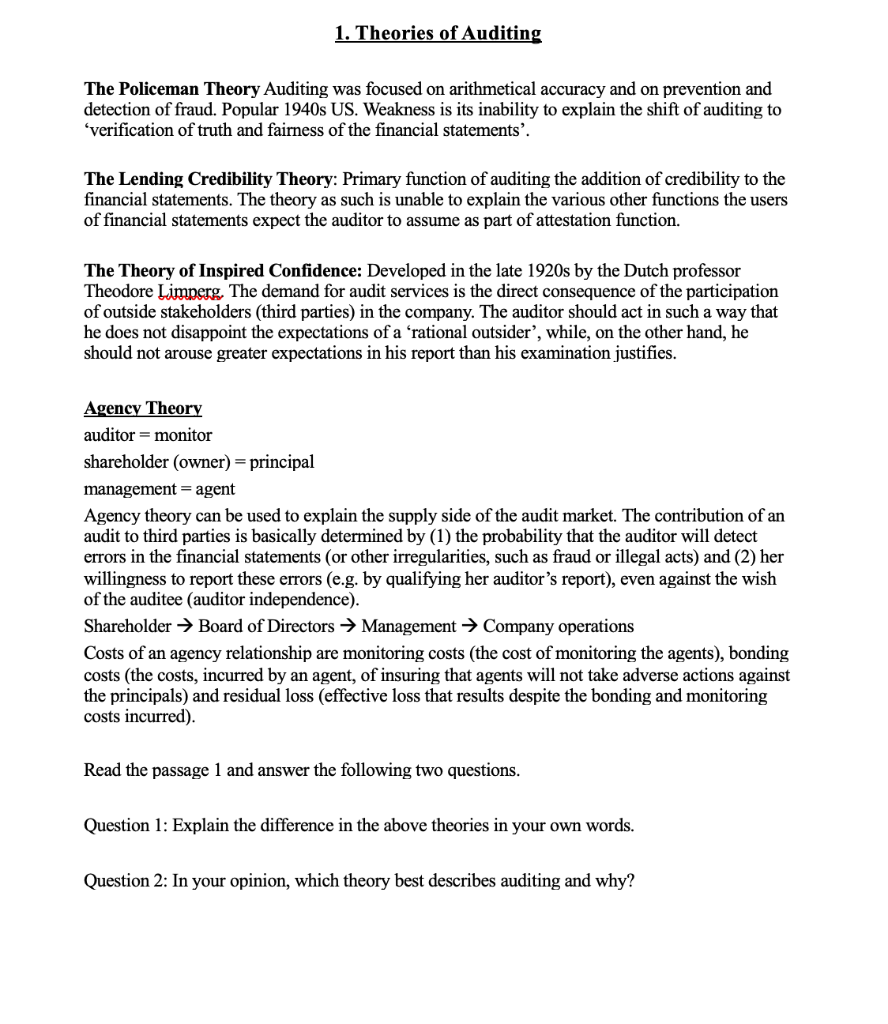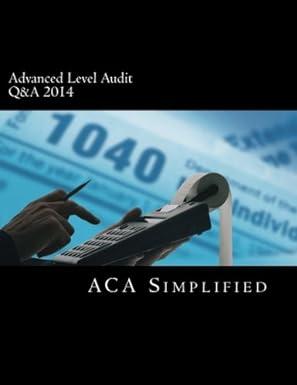
1. Theories of Auditing The Policeman Theory Auditing was focused on arithmetical accuracy and on prevention and detection of fraud. Popular 1940s US. Weakness is its inability to explain the shift of auditing to 'verification of truth and fairness of the financial statements'. The Lending Credibility Theory: Primary function of auditing the addition of credibility to the financial statements. The theory as such is unable to explain the various other functions the users of financial statements expect the auditor to assume as part of attestation function. The Theory of Inspired Confidence: Developed in the late 1920s by the Dutch professor Theodore Limperg. The demand for audit services is the direct consequence of the participation of outside stakeholders (third parties) in the company. The auditor should act in such a way that he does not disappoint the expectations of a 'rational outsider', while, on the other hand, he should not arouse greater expectations in his report than his examination justifies. Agency Theory auditor = monitor shareholder (owner) = principal management = agent Agency theory can be used to explain the supply side of the audit market. The contribution of an audit to third parties is basically determined by (1) the probability that the auditor will detect errors in the financial statements (or other irregularities, such as fraud or illegal acts) and (2) her willingness to report these errors (e.g. by qualifying her auditor's report), even against the wish of the auditee (auditor independence). Shareholder Board of Directors Management Company operations Costs of an agency relationship are monitoring costs (the cost of monitoring the agents), bonding costs (the costs, incurred by an agent, of insuring that agents will not take adverse actions against the principals) and residual loss (effective loss that results despite the bonding and monitoring costs incurred). Read the passage 1 and answer the following two questions. Question 1: Explain the difference in the above theories in your own words. Question 2: In your opinion, which theory best describes auditing and why







